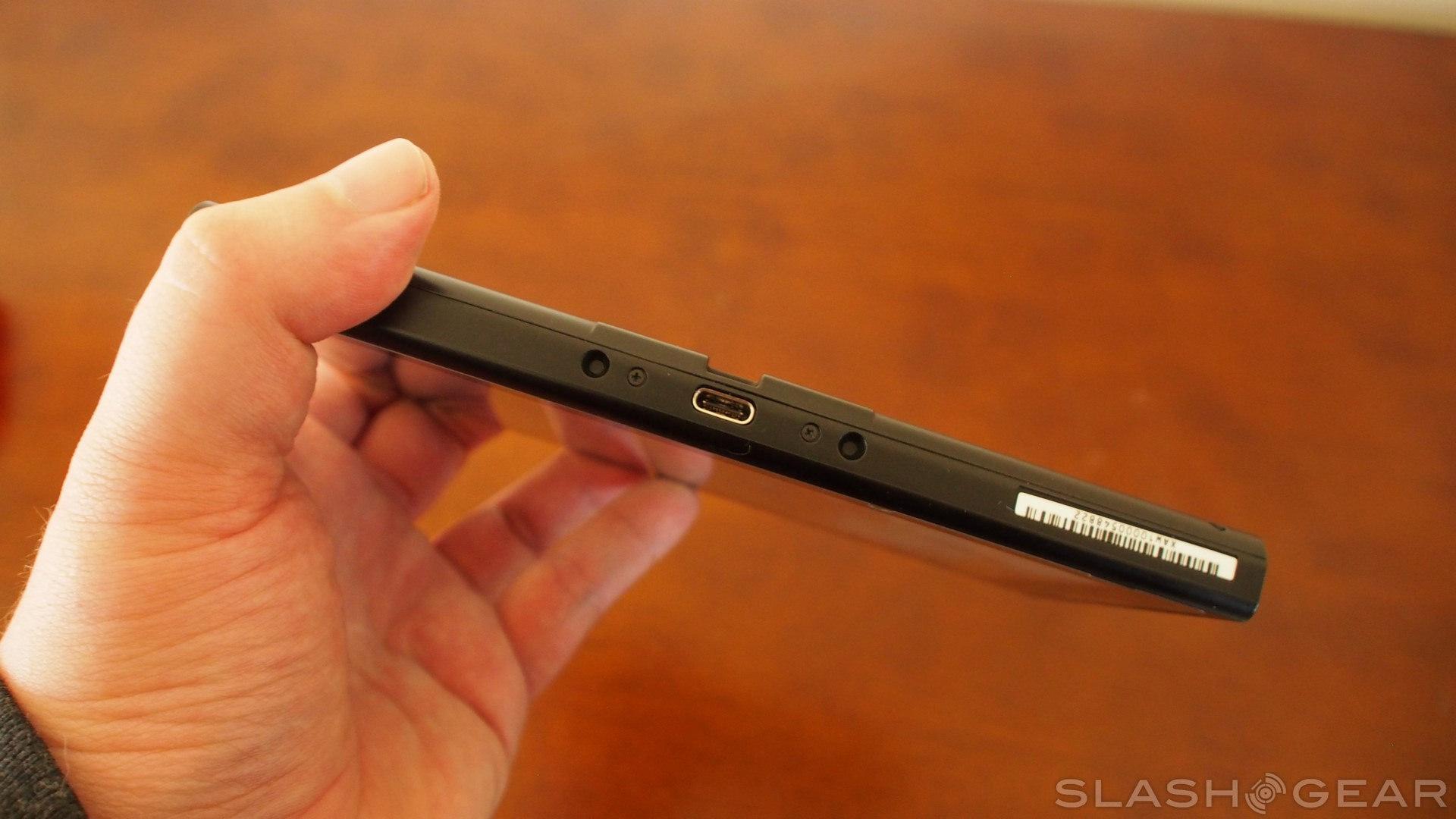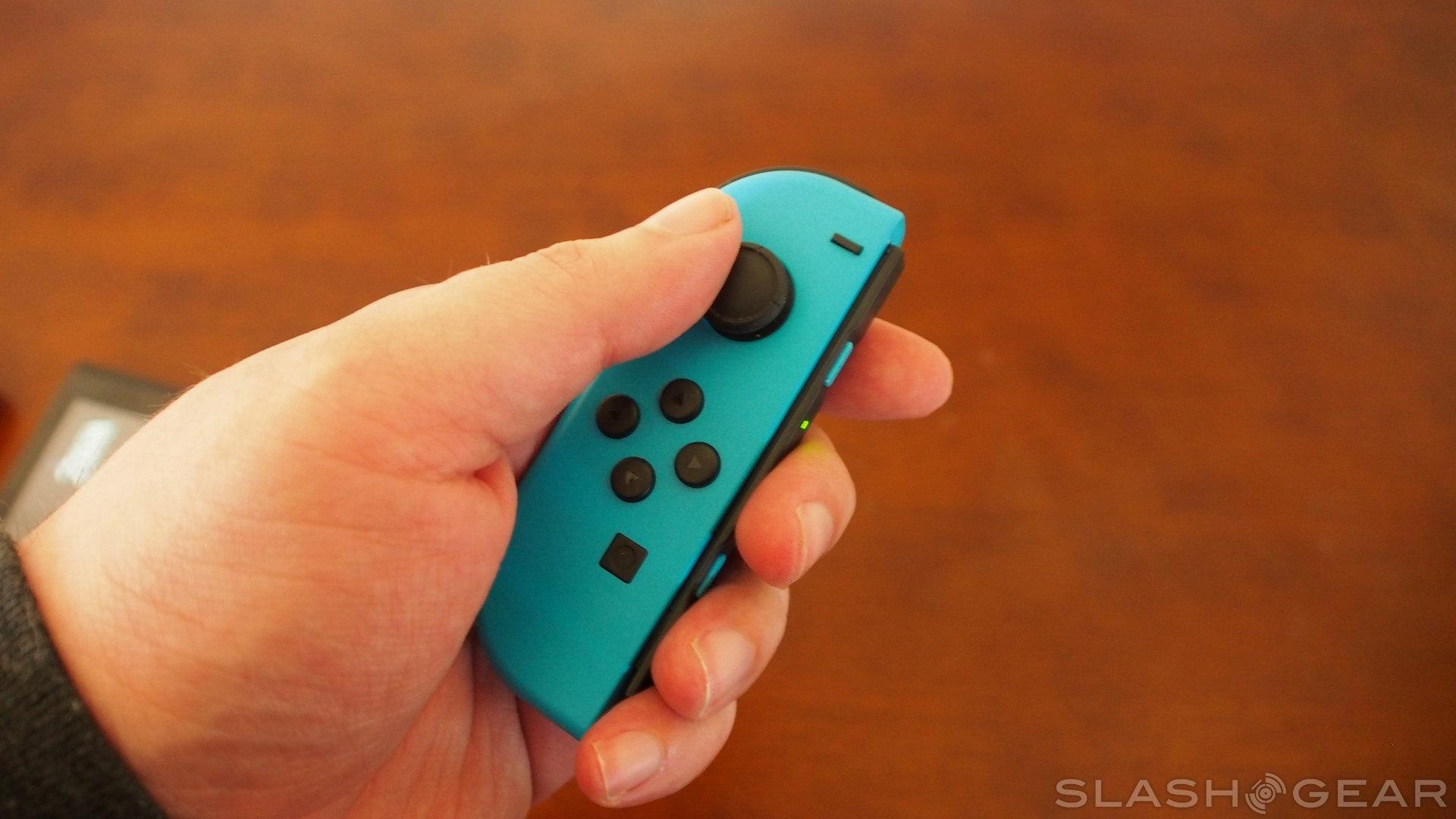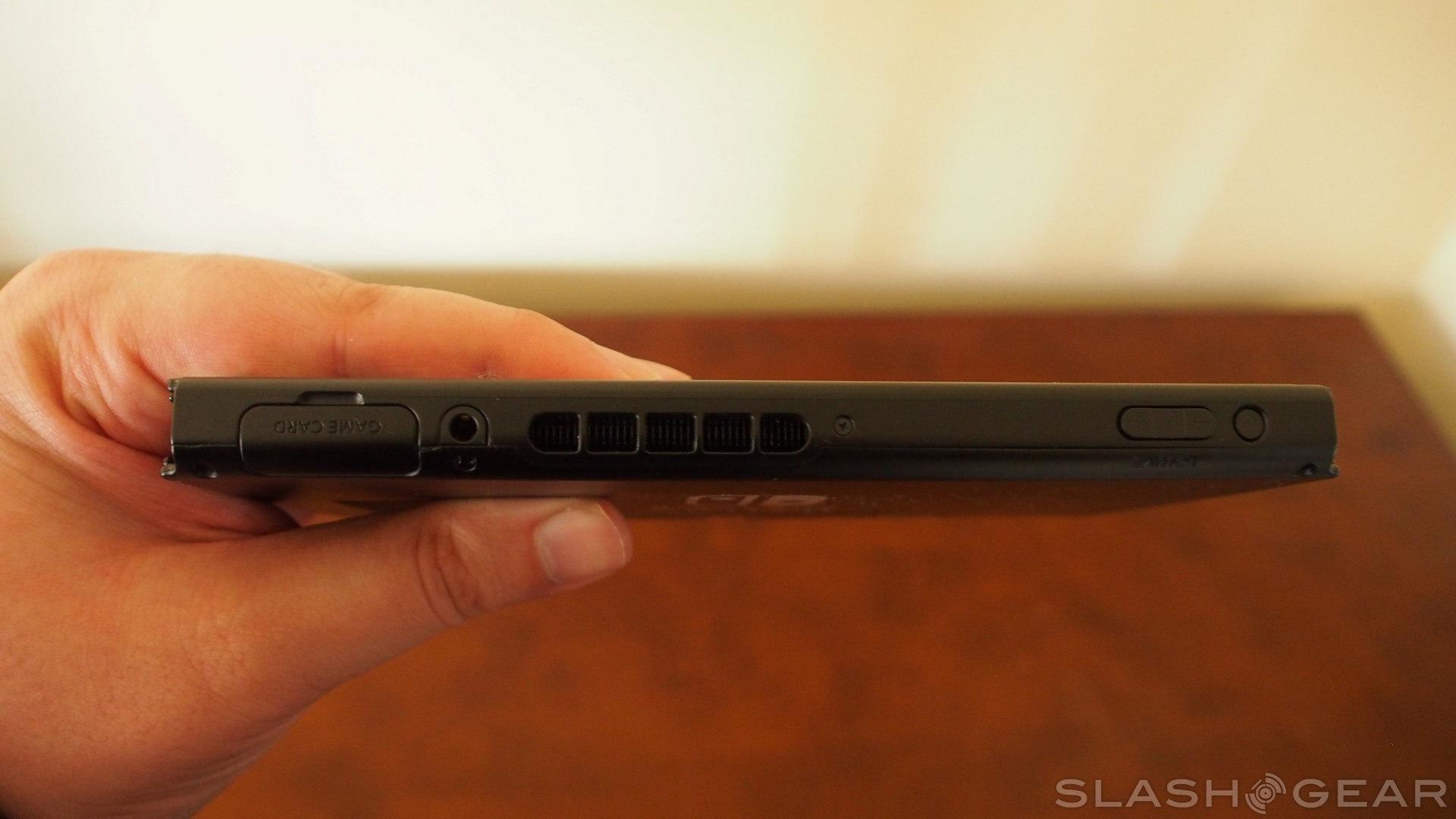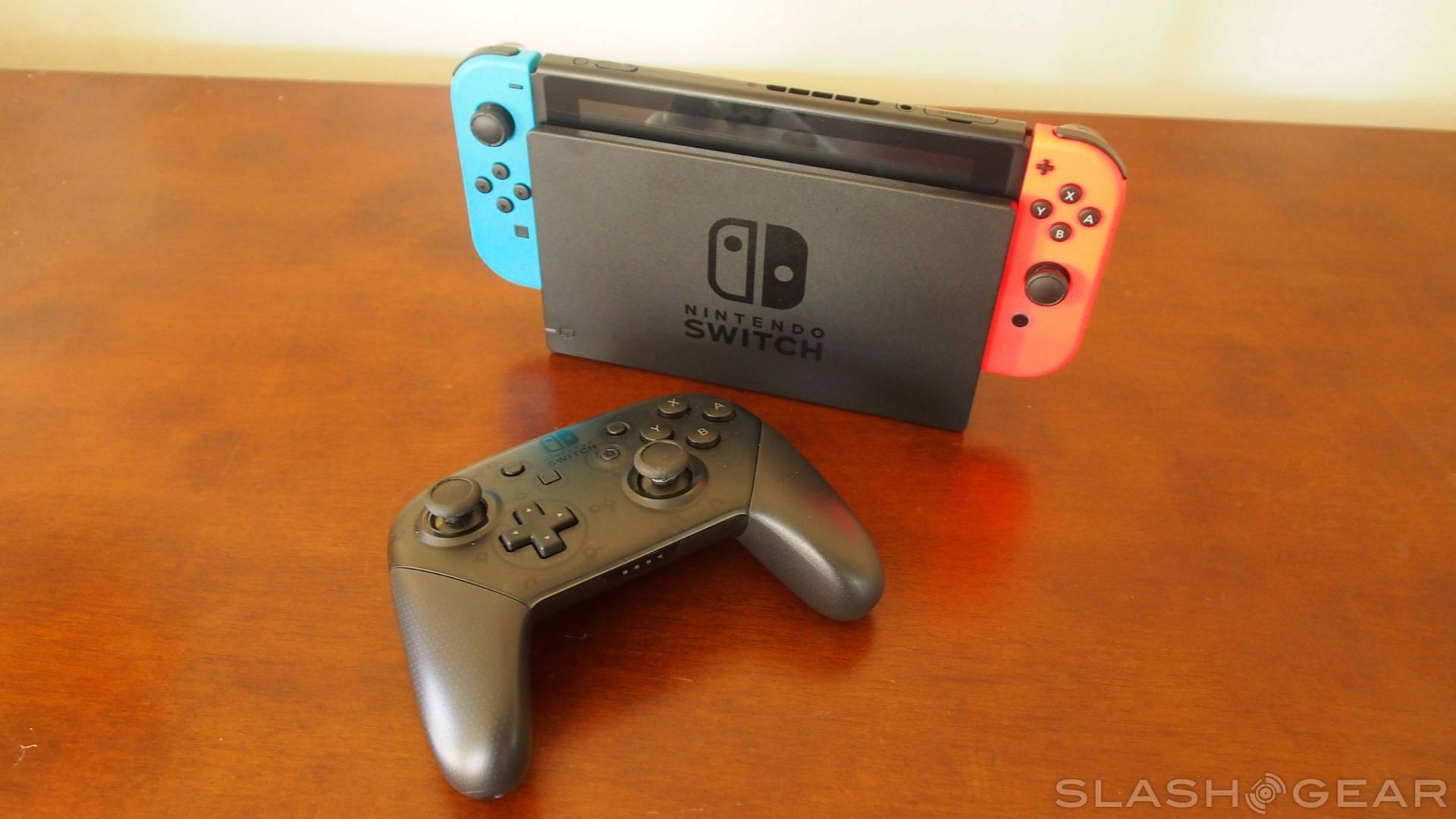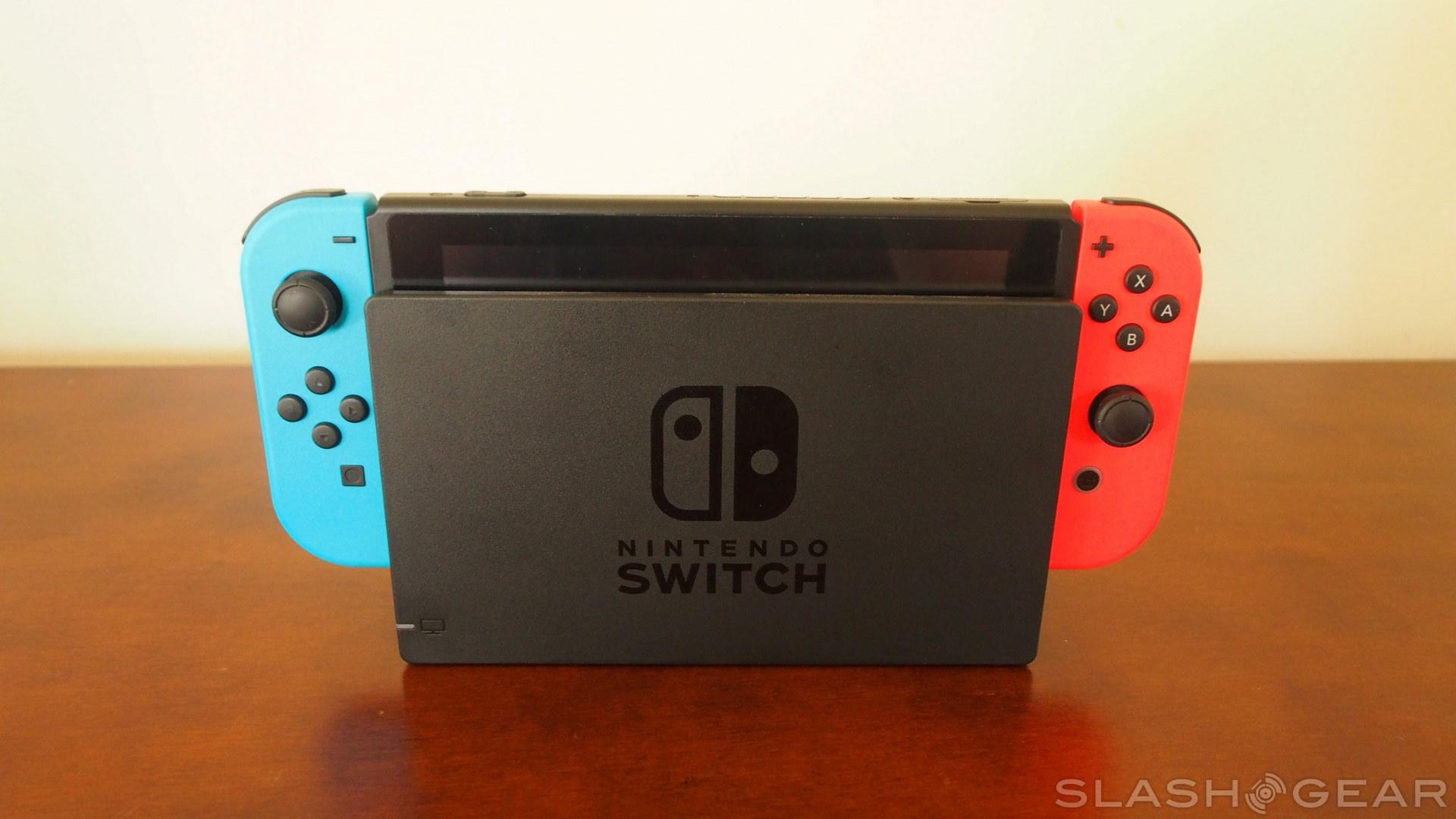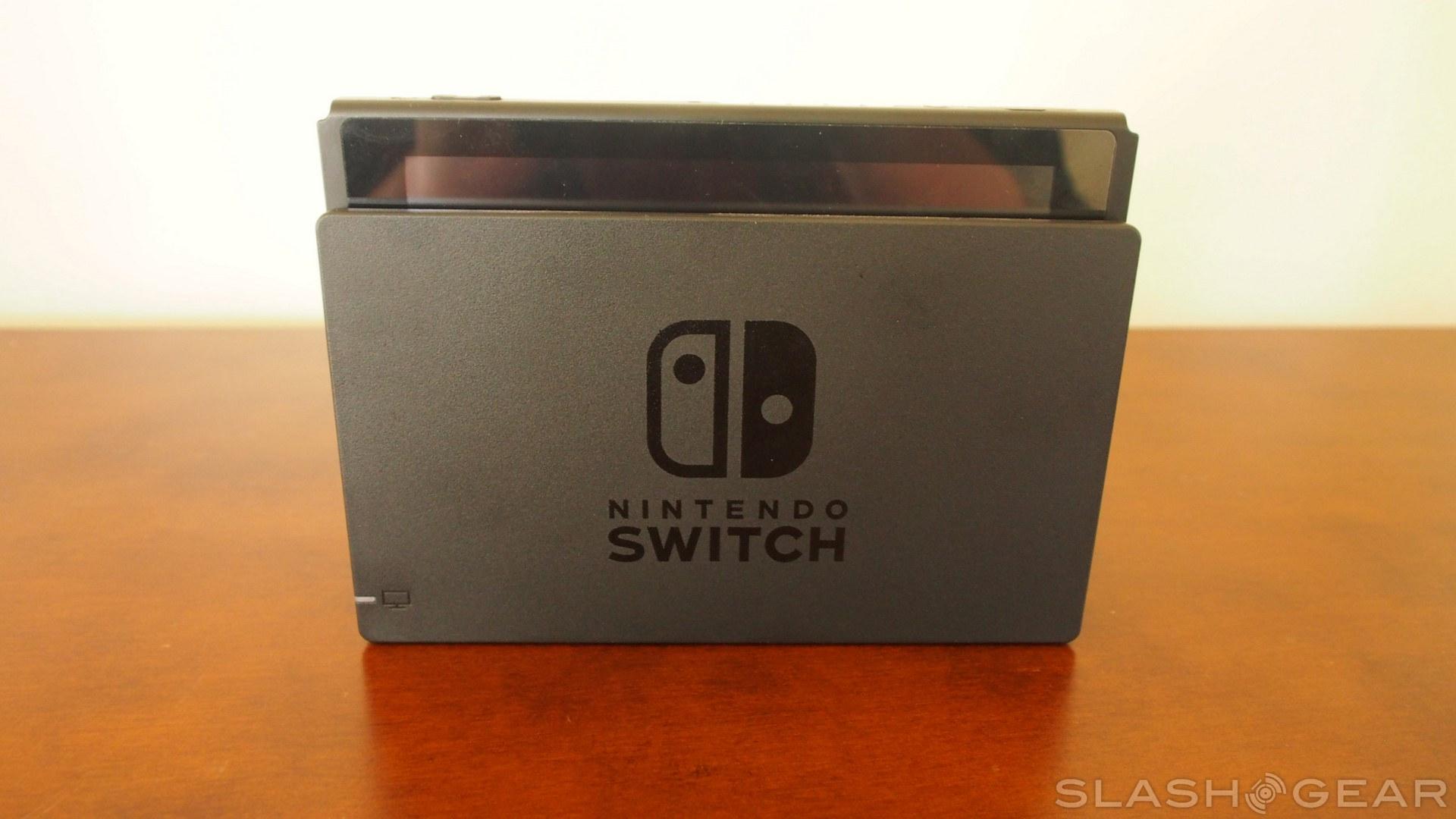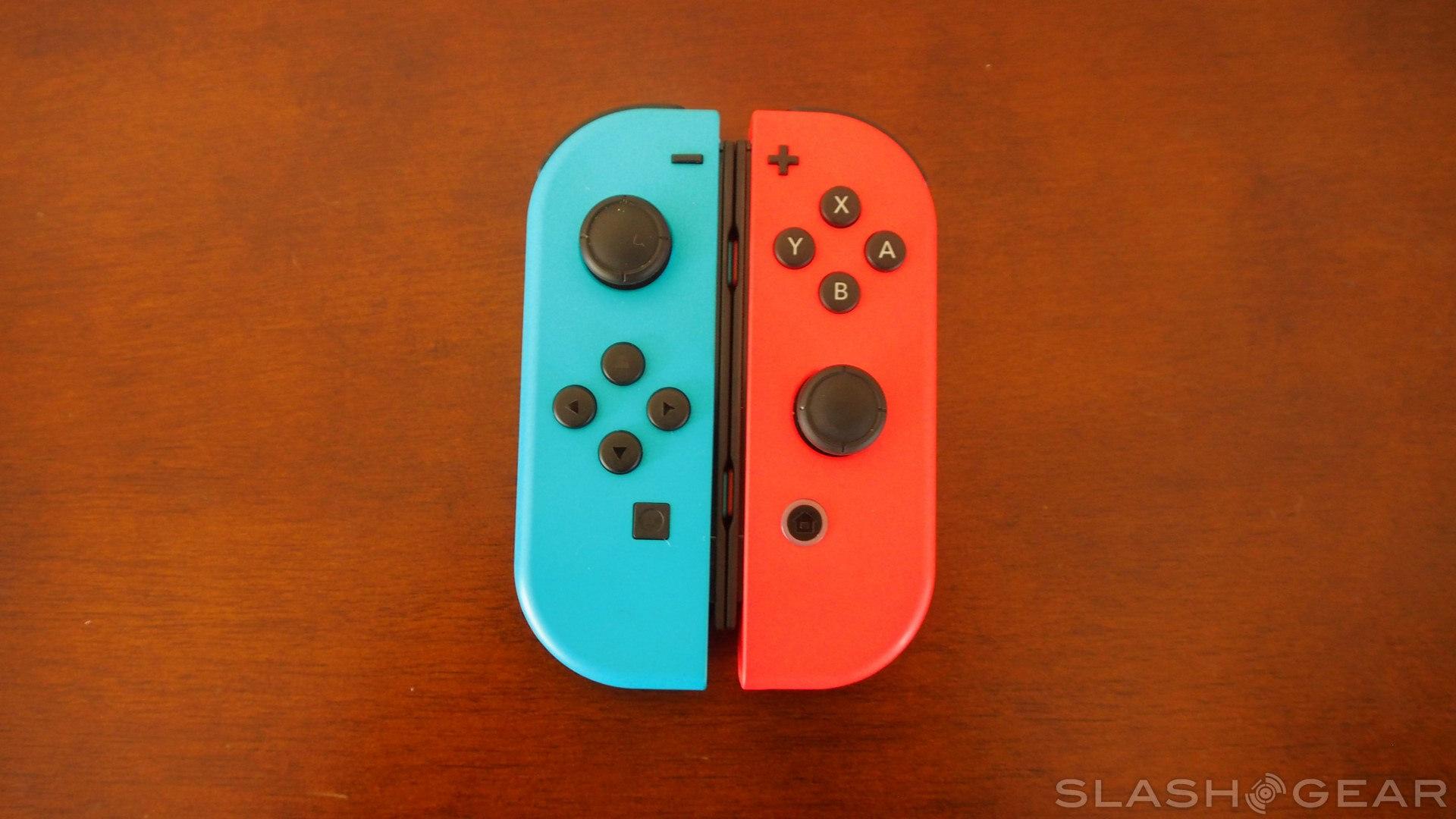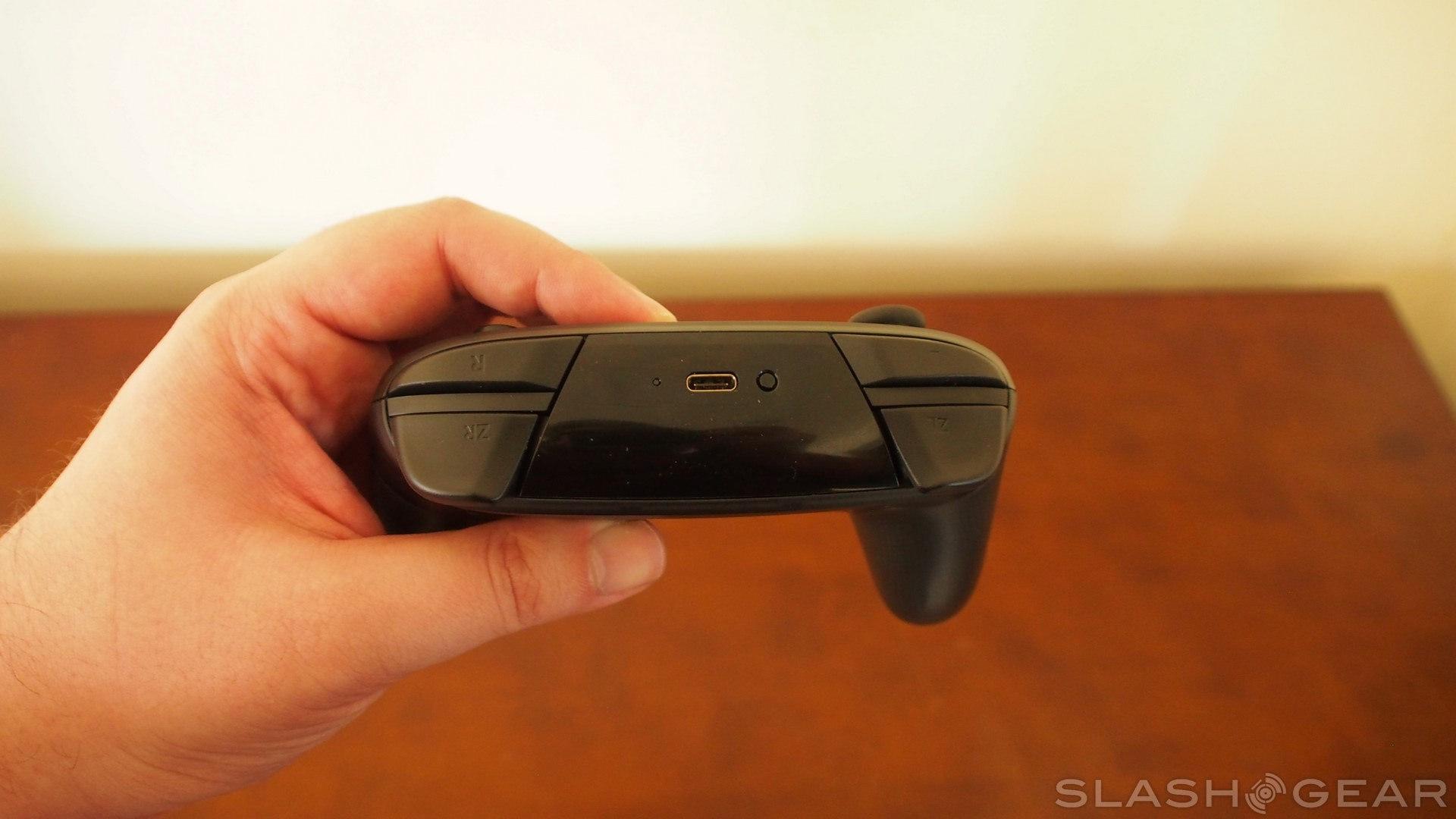Nintendo Switch Review: Excellent Hardware With One Roadblock
- Nintendo's dream of hybrid gaming fully realized
- Truly exciting hardware that stands out from the rest
- Fairly solid launch lineup, especially with Zelda
- Accessories are far too expensive
- Online systems still need a lot of work
- Launch feels rushed in general
I have something of a love/hate relationship with Nintendo consoles, especially in recent years. While I grew up with consoles like the Super NES, Nintendo 64, and Gamecube, in the time since then my preference has shifted to Nintendo's handhelds like the DS and the 3DS. Now that the Nintendo Switch is on the scene, Nintendo is looking to bounce back from a horrible console cycle with the Wii U, while at the same time blending the worlds of console and handheld gaming. How successful is it in doing so?
Design
The Nintendo Switch is going to seem strange to anyone who primarily plays on consoles, but it'll be instantly familiar for those who have gotten on board with mobile gaming. The Switch is, at its core, a tablet. It's a powerful tablet that's more centered on gaming than other mobile devices, but it's a tablet nonetheless.
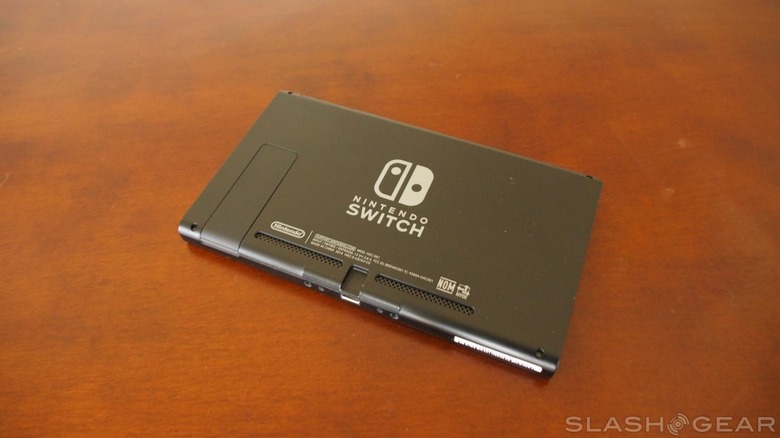
Among gamers who primarily play on PC and console, mobile gaming has developed a bad reputation in recent years. It's easy to understand why, as the mobile gaming market has been flooded with free-to-play games that seem to be more an exercise in addiction than anything else. With that kind of reputation acting as a dark cloud over the mobile gaming market, Nintendo is taking a risk by making its latest console decidedly more mobile than other machines that are on the market.
With that said, anyone who would consider the Switch to be one-in-the-same with a more mainstream tablet – you hear comparisons to the NVIDIA Shield often – isn't really looking at the complete picture. The Switch is a much different beast than your standard Android tablet, and a lot of that difference comes down to design.
The most obvious design difference is found in the Switch's dock. Though the dock is mostly a fancy cable management tool, it isn't without its uses. It gives you an easy way to connect the tablet to your TV without a dedicated HDMI port on the console itself, and it also squeezes a bit more graphics power out of the Switch.
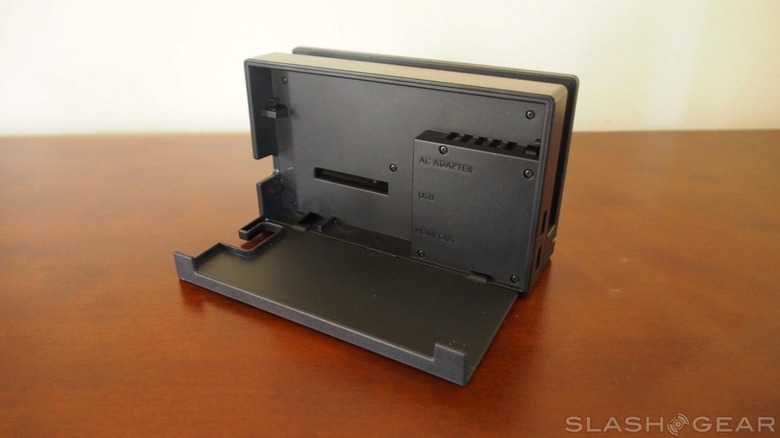
While the dock doesn't have dedicated graphics hardware of its own, the extra power it can route to the Switch increases the clock speed of the custom NVIDIA Tegra processor within the console. This results in increased graphics capability while docked, with Nintendo saying that some games will be able to run at 1080p in TV mode. Ultimately, though, the dock isn't anything special, and it certainly isn't worth the $60 price tag Nintendo has given standalone ones.
If you're going to hold Nintendo to its promise of console-quality portable gaming, then you won't have much need for the dock. Most of your gaming will be done in the Switch's tablet mode, which is where the console's more noteworthy features come into play.
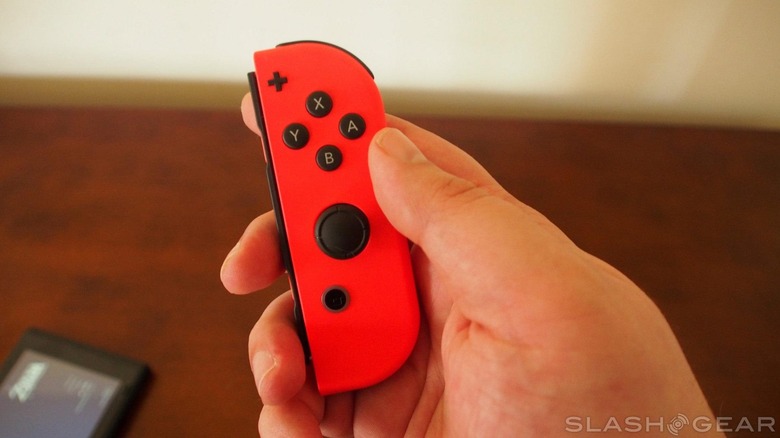
Chief among these are Nintendo's Joy-Con controllers. I was hesitant when I first saw these things, especially being demoed with a game like 1-2-Switch, as they only seemed to be next-generation Wii Remotes. Getting them in my hands, though, they don't feel like that at all. I now believe that the Joy-Con controllers are some of the coolest components of the Switch.
Contrary to my worries, the Joy-Cons aren't too small, even when using them individually. They're certainly the smallest controllers I've ever used, but I didn't notice any discomfort. Perhaps their small size won't be ideal for long gaming sessions, but they definitely aren't as bad as I envisioned them being when Nintendo first previewed the Switch.
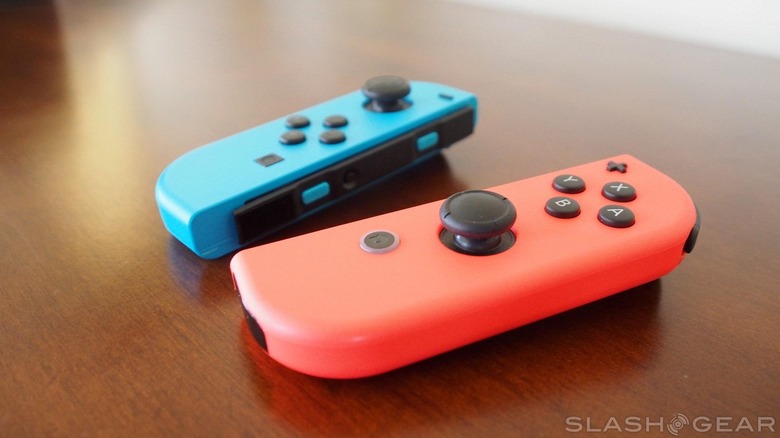
Of course, you probably won't be using them individually all that often. You'll more frequently use them attached to the included Joy-Con grip or attached to either side of the Switch itself. When the Joy-Cons are flanking the Switch, the result is a portable gaming machine that's surprisingly comfortable to use. With the controllers attached, the entire Switch is still smaller than the Wii U gamepad, and it's more comfortable to hold too. I was quite surprised by this at first, and it reinforces the notion that Nintendo originally intended to Wii U to end up more like the Switch.
While there aren't any complaints when it comes to using the Joy-Cons when they're attached to the console, I don't foresee the same being true for the Joy-Con grip. Attaching the Joy-Cons to the grip transforms them into one unified device, but it also makes for a very square controller. It's not awful, but it also isn't very good, and I'd much rather attach the Joy-Cons to the Switch or use the Pro Controller (which is a great, albeit expensive, device) instead.
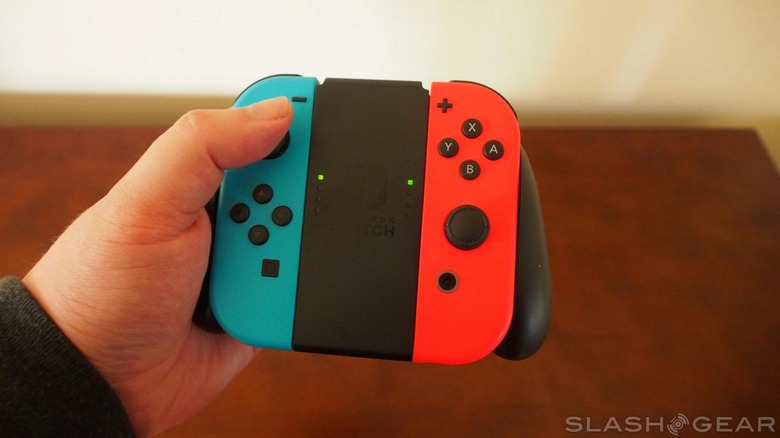
Let's talk about the Pro Controller for just a moment, because there's been a fair amount of controversy surrounding it. Personally, I think this is the best "traditional" controller Nintendo has ever put out – it's certainly better than the Pro Controllers developed for the Wii and Wii U at any rate. It's become my preferred control method when I'm using the Switch in TV mode, and I absolutely recommend it to anyone who picks up a Switch.
The only problem with my recommendation is that the Pro Controller costs a whopping $70 – more than extra controllers cost for either the Xbox One or PlayStation 4. Extra controllers have always been expensive, but Nintendo's pricing here flirts with absurdity. Is the Pro Controller worth the extra price? For me, the answer is yes, but if you're happy with using the Joy-Con grip, you can probably skip it. If not – and you can swing the $70 – then the Pro Controller should be considered essential.
Performance
For the past couple of generations, Nintendo has more or less marched to the beat of its own drum. The last time it put up any direct competition with Sony and Microsoft in terms of sheer hardware power was with the GameCube. Since then, Nintendo has focused on giving its consoles a unique twist at the expense of keeping pace with its predecessors.
It's a strategy that worked shockingly well with the original Wii – so much so that Microsoft and Sony rushed to catch up with Nintendo, offering their own motion capture add-ons in the hopes that they could snatch up some of the Wii's audience. The Wii was one of the most successful video game consoles in history, selling just over 100 million units in its roughly six-year lifespan.
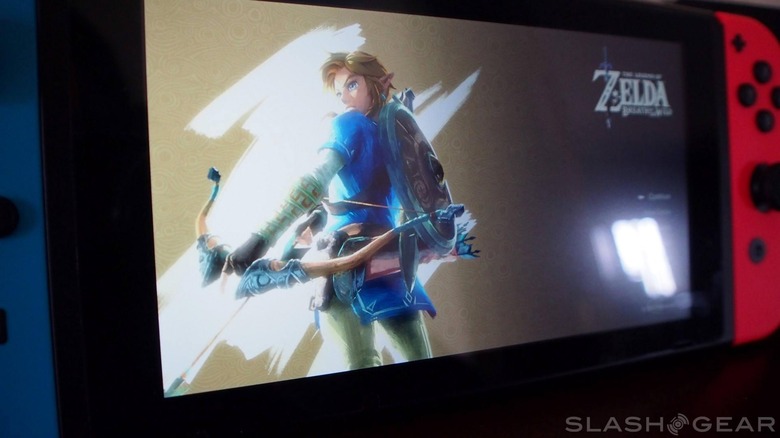
With the Wii U, on the other hand, Nintendo's attempt at introducing a console with an interesting gimmick crashed and burned. The Wii U gamepad, as unique as it was, failed to capture an audience the same way motion controls did, and as a result, consumers were left with an underpowered console that didn't have many redeeming qualities outside of Nintendo's first party lineup.
We see that same mentality in the Switch. When compared to the Xbox One or the PS4, the Switch is pretty well underpowered. Nintendo isn't counting on parity to sell consoles though – instead it's hoping that the Switch's unique design will take care of that.
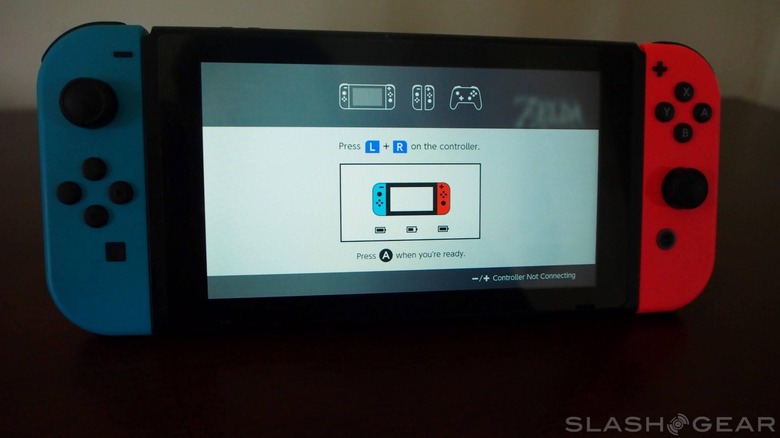
Unless Nintendo is about to strike gold like it did with the Wii, though, I think performance is going to matter more than Nintendo would like it to. Can a console-quality game run on a machine that's slightly more powerful than your standard an Android tablet?
It depends on just how graphics intensive the game is. In The Legend of Zelda: Breath of the Wild, I saw relatively stable frame rates when using the console in both TV mode and tablet mode. Playing on a TV, the frame rate dropped more frequently than it did in tablet mode, which might be surprising to some. However, there's a fairly simple explanation for that: when the Switch is docked, Breath of the Wild runs at 900p, but it seems that even with increased clock speed, the Switch's processor isn't able to keep up all the time.
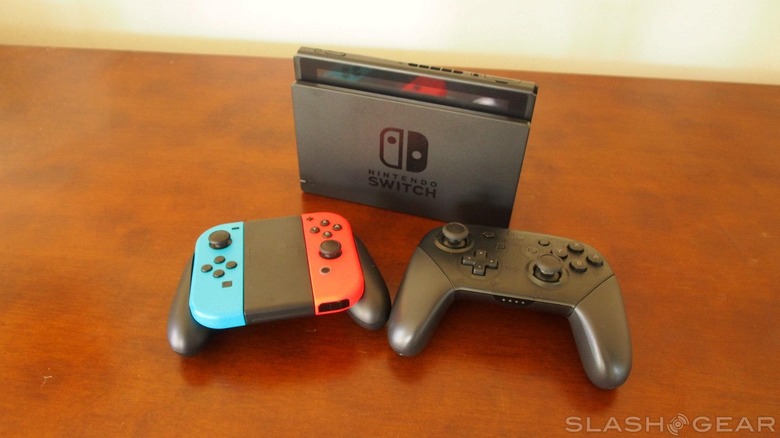
In my experience, these frame drops weren't egregious nor were they frequent – they really only happened during times when there was a lot of action or foliage on the screen. Still, frame drops are frame drops, and it's discouraging to seem them happening at all in a first-party Nintendo game, which are known for their optimization.
The good news, however, is that I didn't really experience any noticeable frame rate problems when I was playing in tablet mode. When you're using the Switch as a portable, resolution is limited to 720p. Many will complain about that resolution, and I understand the complaints, as it's the bare minimum required to be considered high definition. I was still pleased with the quality of the picture in tablet mode, because on a 6.2-inch display (the same size as the Wii U gamepad's screen, interestingly enough) 720p looks plenty sharp.
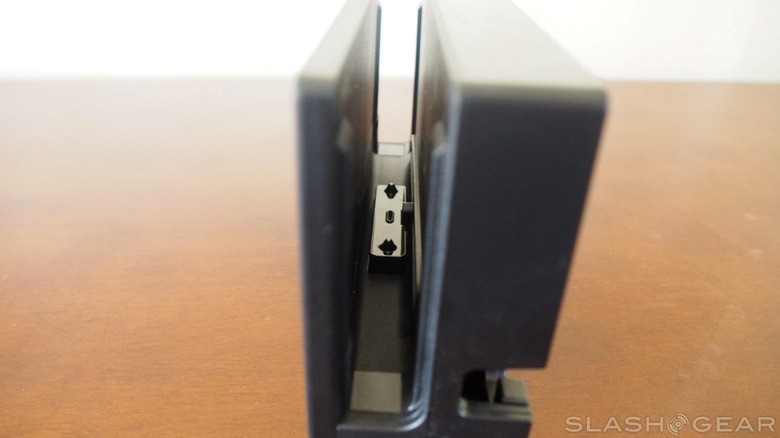
So, it would seem that the Switch runs better in tablet mode than it does when it's docked and trying to output in a higher resolution. Perhaps Breath of the Wild is a unique case, because another game I've been playing, Fast RMX, doesn't seem to have any issues running on the Switch hardware. Whether I'm playing in tablet mode at 720p or in TV mode in 1080p, frame rates are steady in that game. It's worth pointing out that Fast RMX doesn't exactly offer graphics on the same level as Breath of the Wild, but they're good enough that I would expect something in the way of frame drops if the Switch's hardware were truly underpowered.
Battery life seems to be on par with Nintendo's own estimates. I've only really tested battery life while playing Breath of the Wild, but it takes about three and a half hours to run the battery from 100% down to the point that the console begins telling you that it will enter sleep mode soon. That seems acceptable enough considering that my Shield tablet lasts just about as long doing far less than trying to run the latest Zelda game.
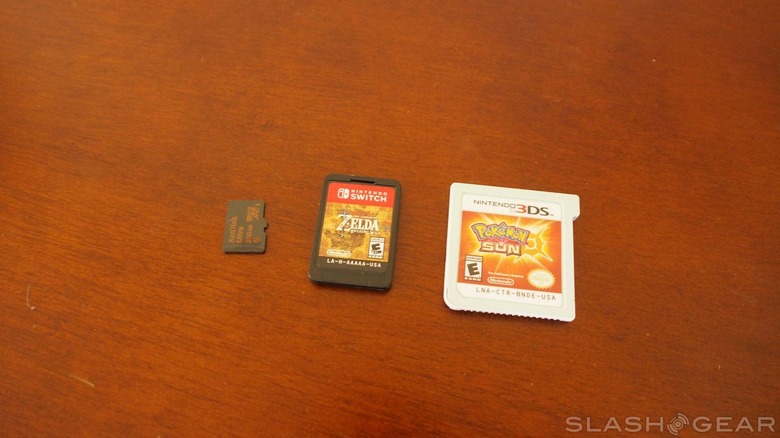
I'm excited to get some more games on here and see how long the Switch's battery can last when it's playing a graphics-light indie title. I would imagine that the battery will last significantly longer, and if that assumption holds true, then I definitely see the Switch becoming a regular item I take along with me when I travel.
Thankfully, Nintendo has decided to do away with propreitary cables in the Switch, using USB-C to charge the console instead. With the transition to USB-C as the charging standard for Android already well underway, USB-C cables and chargers are easy to find, which means it should be easy to charge your Switch on the go. Even better is the fact that Nintendo saw fit to actually give us a USB-C adapter in the box, something that may seem like a given to anyone but New 3DS owners, who weren't afforded such a luxury.
So, performance is usually acceptable, but it's clear that the Switch is already hitting a ceiling in terms of what it's capable of with Breath of the Wild. Frankly, this is a little worrying. I know Nintendo is going to offer an enjoyable lineup of good first-party because that's what Nintendo does. I'm concerned, though, that third-parties are going to largely ignore the Switch the same way they ignored the Wii U, because it doesn't come close to the Xbox One or the PS4 in terms of power.
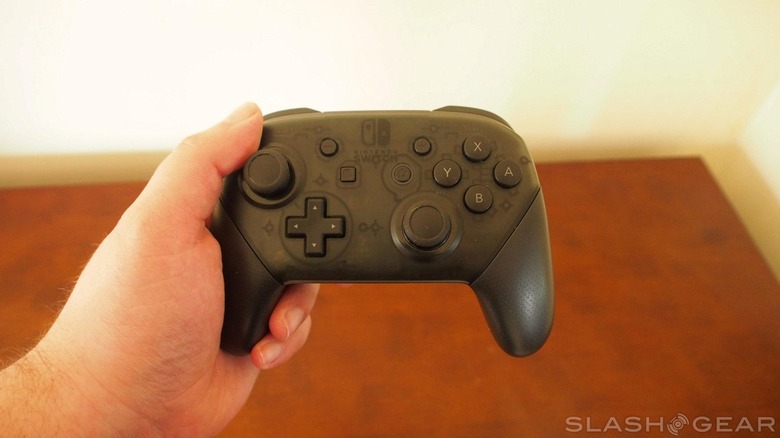
In order to get third-parties to pay attention to the platform, Nintendo is going to have to figure out a way to make this more like the Wii and less like the Wii U in terms of sales. I'm not sure if the Switch will have a Wii-like effect on mainstream consumers, and if it doesn't, then we can probably kiss significant third-party support goodbye. After all, why spend the extra time creating a port of your game for the Switch if it doesn't have nearly the same number of people playing as Xbox One and PlayStation 4 do?
This is a question Nintendo is going to have to answer when it comes to third-parties, and aside from throwing money at the problem, I don't think Nintendo's answer will be good enough. Nintendo, in my opinion, is doing a good job with indie titles on the Switch, but indie games can only take a console so far. Once the hype surrounding launch dies down and the Nintendo faithful all have Switches of their own, will the big third-party developers and publishers still be enthusiastic about the console? I don't know, and after the Wii U, I'm not convinced of Nintendo's ability to make it happen.
Online and what we still don't know about it
Despite my worries about the future, I still find myself enamored with the Switch. I do like this little machine quite a bit, but at the same time, I'm rather disappointed in Nintendo. We're now about two weeks out from launch and I still know very little about how this machine works. Specifically, a lot of stuff about the Switch's online capabilities still seems to be up in the air.
For instance, we know that Nintendo is going to implement a fee to use online services starting this fall, but how much will that fee be? What, exactly, do I need the companion app for? Why do I need the companion app at all? Will Nintendo try to create any additional value beyond giving me a free game each month and then taking it away when that month is over?
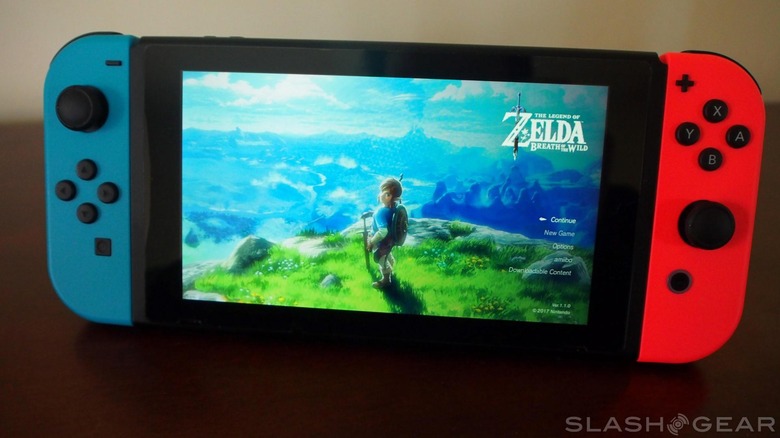
Then we come to one of the most important questions I have: why does Nintendo expect me to pay a fee to play online when it can't be bothered to create an actual account system for the Switch? Why, after all of the complaining, does the Switch still rely on awful friend codes? The launch of the 3DS proved to us that Nintendo isn't deaf to its fans, so why hasn't Nintendo listened to fan feedback on friend codes when they've caused nothing but frustration for years now?
Here's the thing: I think it's bogus that any console manufacturer makes us pay to play online. If I don't to pay a subscription to play on PC, then surely I shouldn't need to pay one to play on a console. Sony and Microsoft, to their credit, at least try to create a little more value by handing out "free" games each month, but Nintendo won't even to do that. To have Nintendo expect payment for online play only to look the other way when it comes to actually putting work into its online system feels insulting.
Hopefully some of these questions get answered sooner rather than later. Hopefully Nintendo doesn't implement an online fee without putting some serious consideration into what their online system currently is versus what an online system should be. Given Nintendo's track record with online play, I'm not confident that this will happen, but I'm hopeful nevertheless.
Wrap-Up
So, where does all of this leave us? I'm a bit torn. I'm a big fan of the Switch hardware itself. As I said in an opinion post I wrote about a week ago, I think this is the coolest thing Nintendo could have done if it's determined to avoid playing the numbers game with Sony and Microsoft. The Switch is absolutely distinct from anything else on the market, and I think that could help it net some sales in the end.
However, at this early stage, the Switch is held back by Nintendo being Nintendo. The company doesn't seem interested in being upfront with fans, and it avoids tough questions about the system to the Switch's detriment. Nintendo's mentality is "trust us and buy this thing now; we'll hammer out the finer points later."
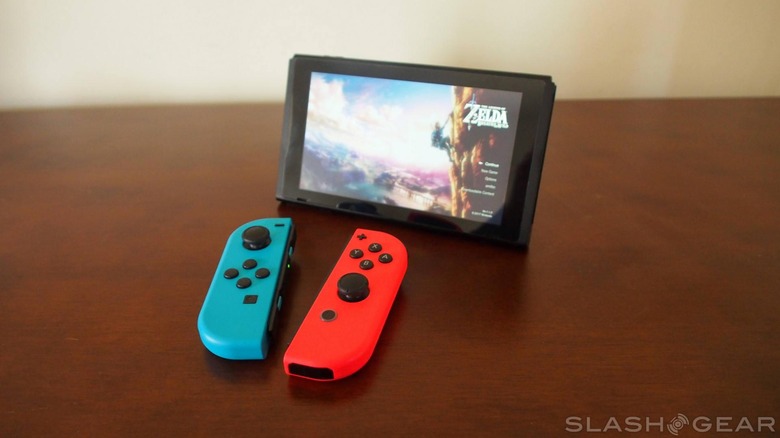
It really feels like the Switch arrived three months too early. The online system Nintendo has developed was clearly an afterthought, otherwise we wouldn't have friend codes and we'd have clearer answers about what to expect from it. The launch lineup, while good with games like The Legend of Zelda: Breath of the Wild, Fast RMX, and Snipperclips, isn't as comprehensive as Nintendo needs it to be after the debacle that was the Wii U. Waiting for a June launch would have meant Breath of the Wild, Splatoon 2, and Mario Kart 8 Deluxe all on day one, making the Switch a much better purchase for anyone who's even vaguely a Nintendo fan.
There are also some launch problems that Nintendo hasn't really talked about, from Joy-Cons desyncing, to docks that scratch the display. With something as obvious as one component damaging another when they're both used as intended, it really makes it seem like Nintendo didn't do enough QA testing. I haven't had any problems myself, and I have to judge based on my own experience, but these reports do give a feeling that the whole launch was rushed.
And yet, I can't help but love this thing. Should you buy it now? Probably not, unless you simply can't wait to play Zelda (which is admittedly amazing). Instead, it might be a better idea to wait until the end of 2017, when other titles like Super Mario Odyssey and Splatoon 2 will be available, making the console a much better buy. Still, I'm more excited for the Switch than I have been for any other console in a long time, and that's because it does something unique. The Switch succeeds despite Nintendo, and I just hope that Nintendo takes these criticisms to heart before it gets in the way too much.

